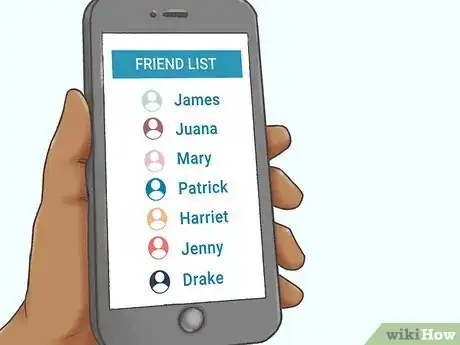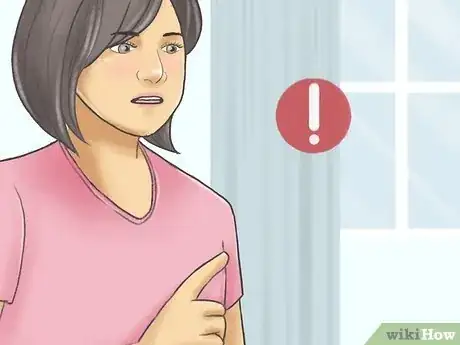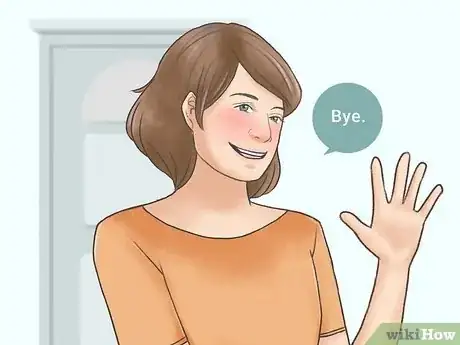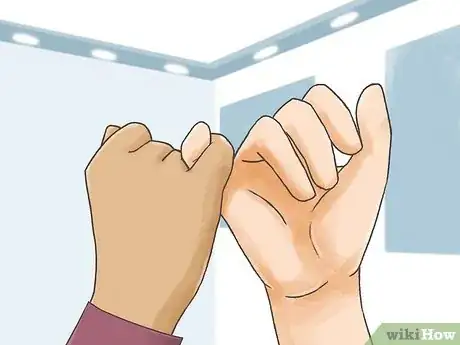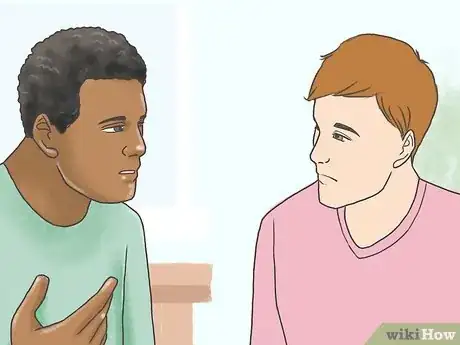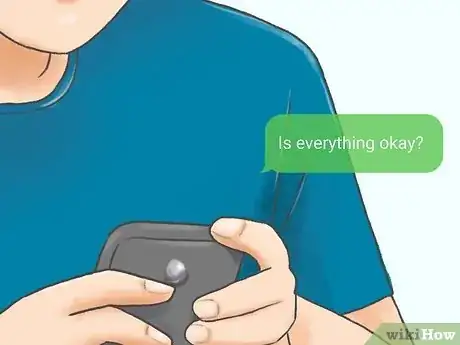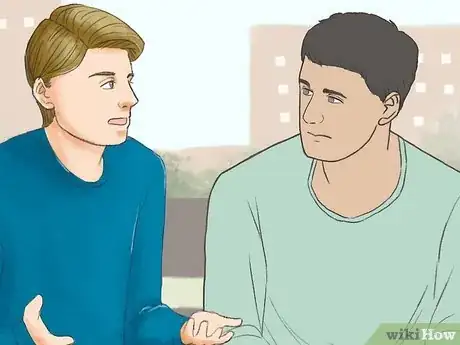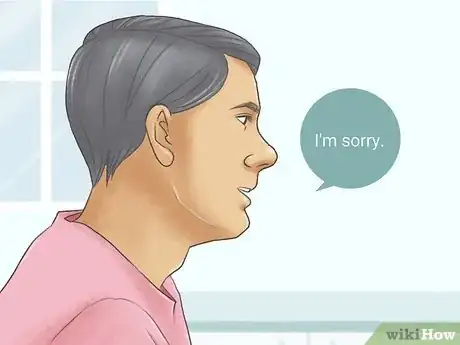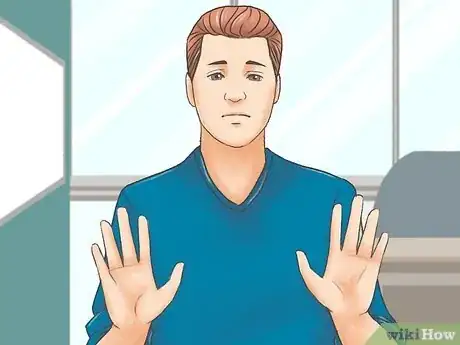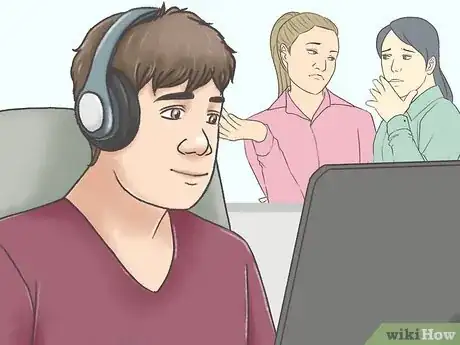This article was co-authored by Allison Broennimann, PhD. Dr. Allison Broennimann is a licensed Clinical Psychologist with a private practice based in the San Francisco Bay Area providing psychotherapy and neuropsychology services. With over a decade of experience, Dr. Broennimann specializes in in-depth psychotherapy to provide solution-focused treatments for anxiety, depression, relationship problems, grief, adjustment problems, traumatic stress, and phase-of-life transitions. And as part of her neuropsychology practice, she integrates depth psychotherapy and cognitive rehabilitation for those recovering after traumatic brain injury. Dr. Broennimann holds a BA in Psychology from the University of California, Santa Cruz, and an MS and Ph.D. in Clinical Psychology from Palo Alto University. She is licensed by the California Board of Psychology and is a member of the American Psychological Association.
This article has been viewed 88,964 times.
Friendship is a source of happiness and support, but can also be at the root of stress and drama in your life. To avoid drama with friends, it’s important to evaluate all of your friendships and make whatever changes are necessary, whether that means leaving behind toxic friends, communicating more effectively, or confronting your own shortcomings.
Steps
Dealing with Toxic Friends
-
1Take an inventory of your existing friendships. Ask yourself if any of your friends feel like “emotional vampires”--people who want to be listened to, admired, and sympathized with, but don’t return the favor when you want to talk. Does it seem like they’re pulling you down into their problems without helping you with yours?[1]
-
2Confront friends head-on when you see warning signs. These could include a friend talking behind people’s backs, acting rudely towards friends or family, or anything that makes you uncomfortable or upset. Examine how you feel after spending time with them. Feeling tired, stressed or upset after the interaction is the biggest red flag of all. [4]
- Confront them kindly but firmly by saying, “You’ve been talking a lot about other people lately and it’s been bothering me. Is there anything you want to talk about?”
Advertisement -
3Limit your time with toxic friends, or leave them behind completely when necessary. If a friend doesn’t respond to your attempts to help or doesn’t show any effort towards changing their habits, it may be time to let the friendship go.[5] [6]
- Try saying, “I value our friendship, but it’s become too difficult to overcome your negativity. If you ever want to talk or try to change your outlook, I’m here, but I need to focus on myself for a while.”
Communicating Effectively with Your Friends
-
1Focus on the positives. No friendship is perfect, but if it’s a friendship worth keeping, the positives will outweigh the negatives. If you’re feeling upset with a friend, remember a time they’ve been there for you and remind yourself that you need to do the same for them, even if it’s difficult.[7]
- Try not to dwell on the little things that annoy you, like a friend who takes a couple of hours to text back or who is too busy to spend time with you during the week. Unless these small issues become more serious, accept them as a part of your friend’s life and personality that aren't worth getting upset over. [8]
-
2Be honest with your friends. As a good friend, you can also be a “constructive critic” by gently letting your friends know when they’re not at their best, and they can do the same for you. Avoid drama and hurt feelings by deploying your honesty with sensitivity and kindness, highlighting their positive attributes as well as giving advice.[9]
- Clearly communicate your boundaries. For instance, if you've footed the bill at dinner every time you go out, say, "Hey, I love getting dinner with you, but I can't keep doing it unless we alternate who pays or split the bill."[10]
- For example, if a friend handled a situation poorly, say, “I admire you for not avoiding confrontation. Next time, though, try to keep a cool head instead of letting other people get to you.”
-
3Air out issues as they come up. If you’re upset by something your friend is doing, tell them about it as soon as an appropriate moment arises, instead of letting the tension build up.[11] For example, if you’re upset that a friend is avoiding you, say, “We haven’t been hanging out much lately and I miss seeing you. Is everything okay?”
-
4Talk out problems in person, not on social media. Leaving an angry comment on Facebook is more likely to spiral into online drama than resolve anything, and even texting and email have their limitations. When possible, talk through problems face-to-face, or even over the phone, to avoid miscommunication and hurt feelings. [12]
Focusing on Yourself
-
1Confront your own shortcomings. Everybody brings their own, potentially drama-inducing imperfections to a friendship. Learn what causes you pain in a relationship and what your reactions are. For example, a friend not spending time with you or talking behind your back might prompt you to get angry and yell at them, or you might clam up and refuse to talk about it. No matter what your tendencies are, be open about them with your friends. [13]
- Say, for example, “I know I have a quick temper and I’m trying to work on it. I don’t want it to come between us or our friendship.”
-
2Own up to your mistakes, even when it’s difficult. If you’re mad at a friend for canceling dinner plans, give yourself time to cool off and then apologize. Don’t let the anger or hurt feelings fester. [14]
- Your friend’s action might be the source of the drama, but your reaction might not be helping either. Learn how to overcome your own tendencies and how to confront others about theirs.
-
3Avoid involving yourself unnecessarily. When an issue doesn’t involve you directly, it’s best to stay out of it. It’s alright to offer your advice or act as a mediator, but don’t let yourself get bogged down in the drama.[15]
- For example, if two of your friends are fighting, agree to hear them both out and offer your advice, but don’t take sides. Say, “I understand where you both are coming from and see that you’re upset. I love you both equally and I want to help by telling you how I see it.”
-
4Focus on your own goals. The best way to avoid drama and gain perspective is to keep your own personal goals in mind. When you feel tempted to get involved in drama, take a moment to assess how much it matters in the larger scheme of your life. You may realize that it's best to leave the situation alone.[16]
- For example, if a friend at work is spreading gossip about coworkers, participating or encouraging them might jeopardize your job or even your ability to find a new position. Avoid the temptation to join in by reminding yourself that this job is an important step in your career. Ignore the gossip, or politely but firmly ask them to stop.
Community Q&A
-
QuestionAm I the toxic friend? How do I know if I'm pushing people away?
 Allison Broennimann, PhDDr. Allison Broennimann is a licensed Clinical Psychologist with a private practice based in the San Francisco Bay Area providing psychotherapy and neuropsychology services. With over a decade of experience, Dr. Broennimann specializes in in-depth psychotherapy to provide solution-focused treatments for anxiety, depression, relationship problems, grief, adjustment problems, traumatic stress, and phase-of-life transitions. And as part of her neuropsychology practice, she integrates depth psychotherapy and cognitive rehabilitation for those recovering after traumatic brain injury. Dr. Broennimann holds a BA in Psychology from the University of California, Santa Cruz, and an MS and Ph.D. in Clinical Psychology from Palo Alto University. She is licensed by the California Board of Psychology and is a member of the American Psychological Association.
Allison Broennimann, PhDDr. Allison Broennimann is a licensed Clinical Psychologist with a private practice based in the San Francisco Bay Area providing psychotherapy and neuropsychology services. With over a decade of experience, Dr. Broennimann specializes in in-depth psychotherapy to provide solution-focused treatments for anxiety, depression, relationship problems, grief, adjustment problems, traumatic stress, and phase-of-life transitions. And as part of her neuropsychology practice, she integrates depth psychotherapy and cognitive rehabilitation for those recovering after traumatic brain injury. Dr. Broennimann holds a BA in Psychology from the University of California, Santa Cruz, and an MS and Ph.D. in Clinical Psychology from Palo Alto University. She is licensed by the California Board of Psychology and is a member of the American Psychological Association.
Clinical Psychologist Try to make sure you're giving as much as you're receiving. Do you show your friends you care by checking in on how they're doing? A lot of times, too, it's easy to forget there are two sides when conflict comes up. Listen openly to your friends and make sure you're setting realistic expectations for the friendship.
Try to make sure you're giving as much as you're receiving. Do you show your friends you care by checking in on how they're doing? A lot of times, too, it's easy to forget there are two sides when conflict comes up. Listen openly to your friends and make sure you're setting realistic expectations for the friendship.
References
- ↑ Allison Broennimann, PhD. Clinical Psychologist. Expert Interview. 29 January 2021.
- ↑ Allison Broennimann, PhD. Clinical Psychologist. Expert Interview. 29 January 2021.
- ↑ https://tinybuddha.com/blog/7-crucial-steps-to-minimize-drama-in-your-life/
- ↑ https://tinybuddha.com/blog/conflicts-with-friends-13-ways-to-communicate-without-drama/
- ↑ Allison Broennimann, PhD. Clinical Psychologist. Expert Interview. 29 January 2021.
- ↑ https://tinybuddha.com/blog/7-crucial-steps-to-minimize-drama-in-your-life/
- ↑ http://nypost.com/2017/03/22/how-to-avoid-friend-drama/
- ↑ https://www.dailyworth.com/posts/2658-how-to-confront-someone-the-right-way
- ↑ http://nypost.com/2017/03/22/how-to-avoid-friend-drama/
- ↑ Allison Broennimann, PhD. Clinical Psychologist. Expert Interview. 29 January 2021.
- ↑ Allison Broennimann, PhD. Clinical Psychologist. Expert Interview. 29 January 2021.
- ↑ https://www.mindbodygreen.com/0-10723/7-ways-to-avoid-drama-have-healthy-friendships.html
- ↑ https://tinybuddha.com/blog/7-crucial-steps-to-minimize-drama-in-your-life/
- ↑ https://tinybuddha.com/blog/7-crucial-steps-to-minimize-drama-in-your-life/
- ↑ https://tinybuddha.com/blog/7-crucial-steps-to-minimize-drama-in-your-life/
- ↑ https://tinybuddha.com/blog/7-crucial-steps-to-minimize-drama-in-your-life/
